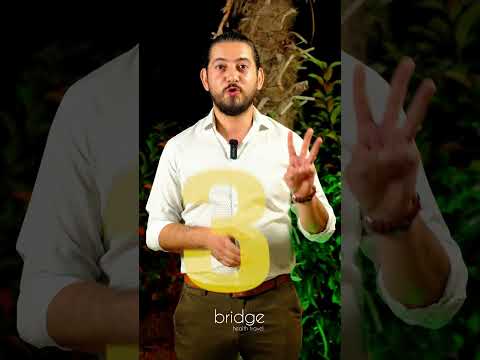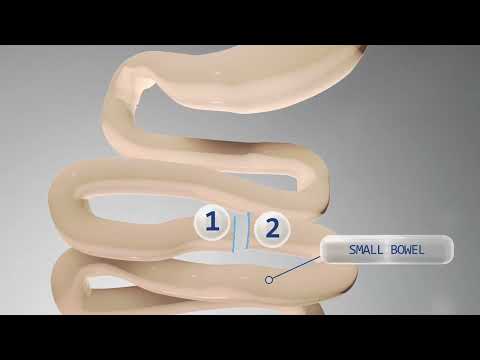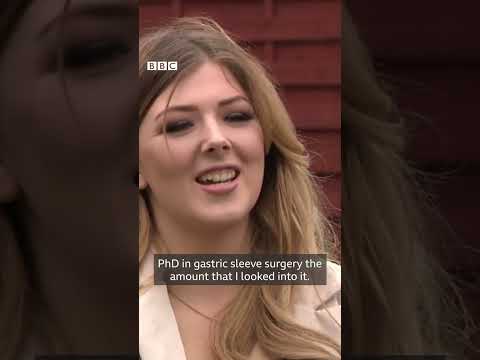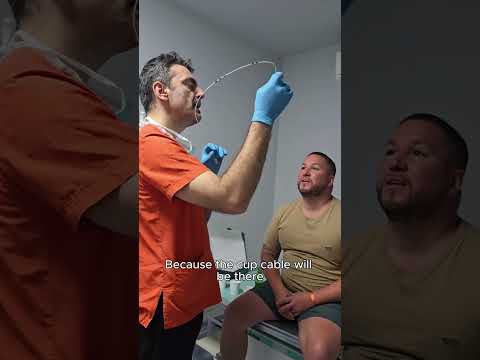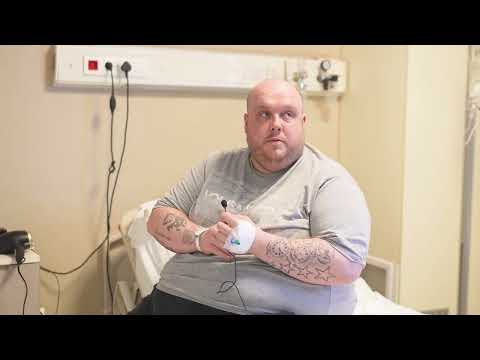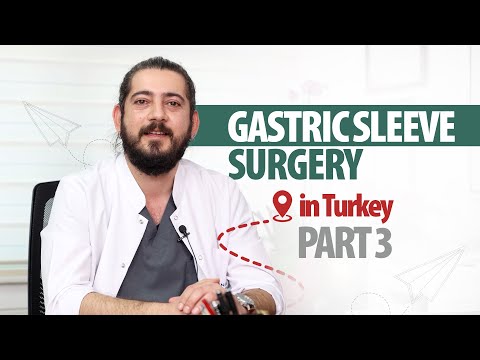Gastric Bypass in Turkey | Bridge Health Travel
Calculate Your Cost / Price
Gastric Balloon in Turkey
Gastric Balloon in Antalya / Turkey, Gastric balloons are made of materials that can remain in the body for 6 to 12 months. Gastric balloon prices vary depending on factors such as the type of balloon used in the procedure and the duration it remains in the body.
What is a Gastric Balloon ?
The World Health Organization defines obesity as the excessive accumulation of fat in the body. According to the criteria of the World Health Organization, obesity can be defined when the body mass index is above 30. It is well known that there are many health problems associated with the global epidemic of obesity. These include serious health problems such as cardiovascular diseases, diabetes, and hypertension. Therefore, obesity needs to be treated not only for aesthetic purposes but also for a healthy life. Nowadays, there are many surgical and non-surgical options available for the treatment of obesity. The decision regarding which treatment to apply to an obese patient is made by considering factors such as the patient's height, weight, age, and general health condition under the supervision of an expert doctor. Gastric balloon is one of the commonly preferred non-surgical treatment methods for obesity. The main purpose of gastric balloon treatment is to reduce the amount of food consumed in a single meal and provide a long-lasting feeling of fullness. Gastric balloons are silicone devices that are inserted into the stomach and can remain there for a certain period of time. The gastric balloon procedure involves placing a deflated balloon into the stomach and then inflating it with saline or a biocompatible and approved blue dye. The inflated balloon occupies more than half of the stomach. The amount of inflation is determined during the procedure, considering that everyone's stomach structure and anatomy are not the same. The endoscopic gastric balloon procedure takes approximately 30 minutes to 1 hour.
How is Gastric Balloon Placement Procedure Done in Antalya / Turkey?
Before the gastric balloon is placed in the stomach, the patient undergoes a detailed evaluation by expert doctors. The patient's general health condition is examined, and any other stomach-related health problems are assessed through endoscopic imaging techniques. If any other health problems such as reflux, gastritis, or ulcers are detected during this examination, the existing health issue is treated first. Afterward, the gastric balloon can be placed. During the gastric balloon placement procedure, general anesthesia is not required. The patient is under sedation while the balloon is being placed. The patient does not experience any pain or discomfort during the procedure. Currently, gastric balloon can be placed in the stomach through two different methods:
ENDOSCOPIC GASTRIC BALLOON IN TURKEY / ANTALYA
During the endoscopic gastric balloon procedure, sedation is administered to make the patient more comfortable. Since the procedure is performed using an endoscopic technique, the patient is advised not to eat or drink anything for a certain period of time before the procedure. The necessary preparations before the procedure are explained to the patient. During the balloon placement stage, an endoscope, which is a thin and flexible tube with a camera at the tip, is inserted into the stomach, and the balloon is placed in the stomach. Then, the balloon is inflated with saline or a completely compatible and health authority-approved blue dye. The inflated balloon occupies approximately more than half of the stomach. Since everyone's stomach structure and anatomy are not the same, the decision on how much to inflate the balloon is made during the procedure. The endoscopic gastric balloon procedure is completed within approximately 30 minutes to 1 hour.
FQ About Gastric Balloon Clinic in Antalya / Turkey
Weight loss before surgery was associated with readmission for abdominal pain and increases in urinary tract and surgical site infections, researchers found. The tradition may also be tied to insurance carriers who require weight loss and counseling before surgical treatment. The singer-songwriter lost 100 pounds in two years by lifting weights and doing circuit training. "So I do my weights in the morning, then I normally hike or I box in the afternoon, and then I go and do my cardio at night," she said. "I'm an... +More
Swallowable Gastric Balloon Whatclinic Reviews in Turkey Swallowable Gastric Balloon Reviews in Turkey We tried to collect comments for you under the topic title Swallowable Gastric Balloon Reviews in Turkey The safety of gastric sleeve surgery, or any medical procedure, in Turkey or any other country depends on various factors, including the expertise of the medical professionals, the quality of healthcare facilities, and adherence to safety standards and protocols. While Turkey has gained recognition as a... +More
In the UK, gastroenterology is a well-established medical field. The NHS provides access to gastroenterologists through referrals, though wait times can be significant depending on the region. Private gastroenterology services are available for those seeking faster treatment. The role of a gastroenterologist in the UK is crucial for managing digestive disorders and bariatric surgery outcomes, as well as performing diagnostic and therapeutic procedures such as endoscopies and colonoscopies.
Although individual weight loss will fluctuate depending on factors like health, age, starting weight, and weight loss commitment, patients can expect to lose anywhere from five to 15 pounds per week for the first few months. At around the six-month mark, the weight loss will slow to one to two pounds per week.
A gastric infection often results from bacteria such as Helicobacter pylori (H. pylori), which causes inflammation in the stomach lining. This infection is a major cause of ulcers and, in some cases, can lead to stomach cancer. Treatment involves antibiotics to eradicate the bacteria, along with acid-reducing medications.
The average cost for gastric sleeve surgery in Turkey is 3.500,00 or 3000 £ (all-inclusive package), However, The cost may vary from one clinic to another, and there are a few more factors that can affect your average gastric surgery cost in Antalya - Turkey. Bariatric Surgery Turkey Price For more details in our article, How much does gastric sleeve cost in Turkey where you will find all the information about How much does gastric sleeve cost in Turkey please contact us. How much does gastric sleeve cost in... +More
Most American chocolate is highly processed, and rich in vegetable oil, sugar and preservatives. We encourage our bariatric patients to avoid candies, and other sweet items before and after weight loss surgery. The singer-songwriter lost 100 pounds in two years by lifting weights and doing circuit training. "So I do my weights in the morning, then I normally hike or I box in the afternoon, and then I go and do my cardio at night," she said. "I'm an athlete," Adele said Since salads are typically made of raw fruits... +More
Weight-loss surgery, or bariatric surgery, includes procedures like gastric bypass, sleeve gastrectomy, and gastric banding. These surgeries are recommended for individuals with severe obesity who have not been able to lose weight through diet and exercise alone.
Most abdominal surgeries in Antalya, including complex procedures like bowel resections or liver surgeries, may require extended hospital stays of up to two weeks. The length of stay depends on the type of surgery, the patients recovery progress, and whether there are any complications. Bariatric surgeries, however, usually require a hospital stay of only 1-4 days.
Gastric RNY, or Roux-en-Y gastric bypass, remains one of the most effective surgical options for treating obesity. By reducing the size of the stomach and bypassing a portion of the intestines, patients experience a significant reduction in hunger and an inability to eat large meals. Gastric RNY can lead to rapid weight loss and improvement or resolution of obesity-related conditions such as type 2 diabetes, sleep apnea, and hypertension.
After around 7 to 8 weeks you should be able to resume a normal solid food diet. Your gastric sleeve will allow you to eat almost any type or texture of food. You should aim for three well balanced meals each day. Your calorie intake should be between 1000 and 1200kcal per-day. Bariatric Surgery Turkey Price For more details in our article, Will I ever eat normal again after gastric sleeve where you will find all the information about Will I ever eat normal again after gastric sleeve please contact us. Will I... +More
Pages
-
£ 1580£ 1450GASTRIC BALLOON PROCEDURE PACKAGE
Give a call to learn more about what’s included and to come up with a tailored plan if you need unique accommodations that are not listed below.
- Airport
- Hotel
- Hospital transfer
- The balloon is placed via endoscopy, the procedure takes 15-20 minutes and you are discharged after 2-3 hours. It is enough to stay here for 1 night.
- Blood samples & x-rays
- 5 year follow up
-
£ 2750£ 2550GASTRIC SLEEVE PACKAGE
GASTRIC SLEEVE PACKAGE COST TURKEY / ANTALYA
Give a call to learn more about what’s included and to come up with a tailored plan if you need unique accommodations that are not listed below.- Airport
- Hotel
- Hospital transfer
- 4 day stay at hospital
- Blood samples & x-rays
- 5 year follow up
-
£ 3100£ 2900MINI GASTRIC BYPASS PACKAGE
MINI GASTRIC BYPASS PACKAGE TURKEY
Give a call to learn more about what’s included and to come up with a tailored plan if you need unique accommodations that are not listed below.- Airport
- Hotel
- Hospital transfer
- 4 day stay at hospital
- Blood samples & x-rays
- 5 year follow up







